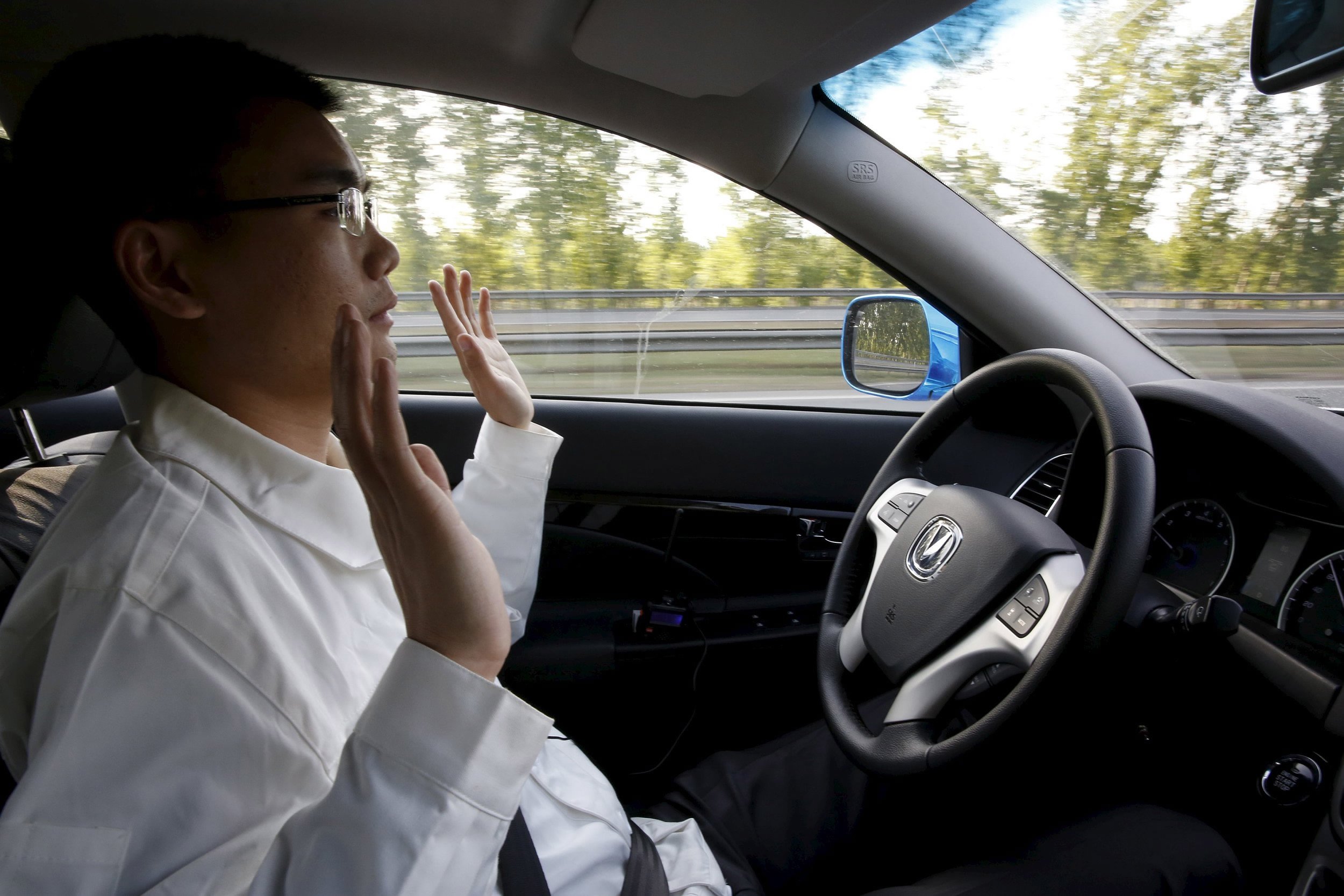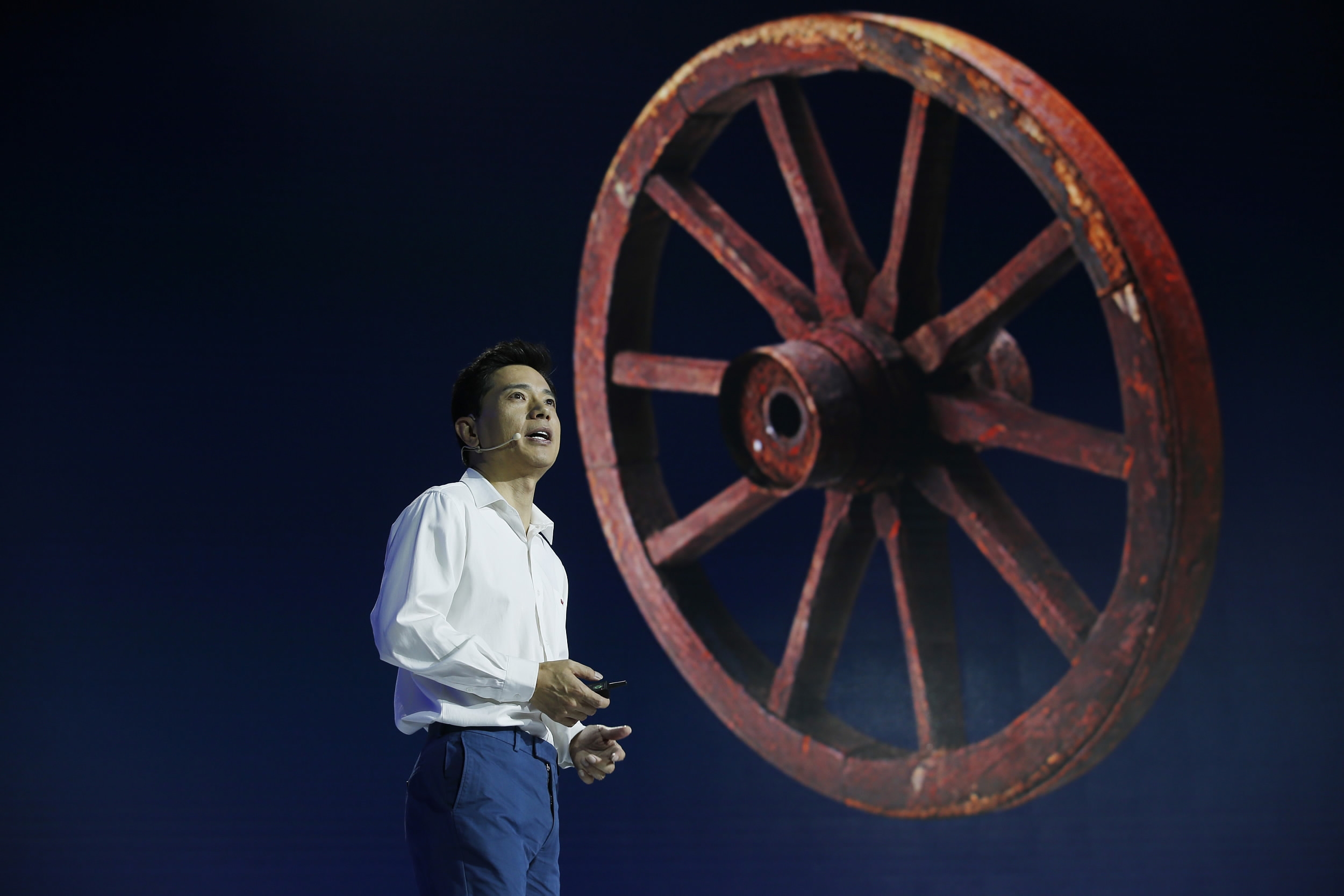
Tech & Sci
16:54, 07-Jul-2017
Hitting the gas: Baidu’s driverless car venture speeds up

Head of a leading Chinese smart vehicle developer Baidu, Robin Li, drove straight into trouble by showcasing his unlicensed pet product on a busy Beijing road on Wednesday, a possible violation of China’s traffic laws.
Legal issues aside, the publicity stunt succeeded in bringing attention to the firm’s self-driving cars and the related legal setbacks in one of the world’s fastest growing auto markets.
The firm is gathering momentum to substantiate its ambition to lead the development of driverless cars. However, Robin Li has to hit the gas in already crowded traffic if he wants to secure a share in the market.
LEGAL BUMP

Li Zengwen, a development engineer at Changan Automobile, lifts his hands off the steering wheel as the car is on self-driving mode during a test drive on a highway in Beijing, China, April 16, 2016. CFP Photo
Li Zengwen, a development engineer at Changan Automobile, lifts his hands off the steering wheel as the car is on self-driving mode during a test drive on a highway in Beijing, China, April 16, 2016. CFP Photo
China does not have any legal precedent governing the testing or driving of driverless vehicles on the road.
In a written statement, police said they supported the innovation of driverless car but would investigate to see if Li had broken the law.
This was the second known public test of a Baidu driverless car navigating the Chinese capital's notoriously tricky traffic.
The previous trial in 2015 is still shrouded in mystery as very few details were revealed.
Li proposed legislation governing self-driving cars himself, voicing concerns about China lagging behind its competitors around the world in advancing the technology due to unfit policies.
In preparation for the legislation, China’s Ministry of Industry and Information Technology issued a drafted instruction on the construction of “Internet of Vehicles” for public scrutiny on June 13.
95 clauses were reportedly related to driverless car regulation in the draft.
China established a closed zone in Shanghai last year for testing smart vehicles that can simulate various real-road driving conditions.
But the world’s second largest economy may not fall too far behind its industrial competitors in regulating autonomous vehicles as more developed countries such as the US are still struggling to unleash more space nationwide for the new driverless cars to be tested on roads.
The US’ National Highway Traffic Safety Administration can make some exemptions to automakers to field-test autos that don’t comply with the federal auto-safety standards. But there are caps on how many cars are allowed to be driven and tested in fields.
According to Bloomberg, American developers are trying to convince Congress to further lift caps.
“It could be messier and it could take longer than we want it to,” IHS Automotive analyst Stephanie Brinley told USA Today in an interview in June.
“We will see some state-by-state and some federal fights happening.
CROWDED PATH

Robin Li, CFP Photo
Robin Li, CFP Photo
Baidu is catching up fast with its global rivals in driverless auto research and is set to round up a commercial chain before its product hits the road legally.
The firm, more often associated with its Internet search engine, announced on Wednesday a wide-ranging cooperation with partners dedicated to the full commercialization of its auto products.
Market players, local governments as well as researchers have all been brought in to form an alliance with Baidu around the firm’s “Apollo self-driving system”.
Key partners include microprocessors developer Nvidia, automakers Ford and Daimler, as well as chipmaker, Intel. German suppliers group Robert Bosch is also on board.
But Baidu is not the only Chinese developer betting on a future where driverless car dominate China’s roads.
Huawei, a Chinese ICT giant, has been rumored to have joined the competition in a joint venture with Tsinghua University.
A picture of a driverless car prototype attributed to the firm has been circulating online since early this year, but neither Huawei nor the university has confirmed its authenticity.
Chinese tech firm Alibaba also has an eye on driverless cars as a follow-up to its product of internet-connected cars which was rolled out last year.
Moreover, Baidu may still be facing more pressure from overseas competitors such as Alphabet, the mother firm of Google, Apple and Tesla.
In April, Waymo, Google’s sister company, laid out an “early rider” project in Phoenix, Arizona, where hundreds of families could drive vans equipped with the firm’s autonomous driving tech within a vast testing area.
Apple had been very secretive about its driverless car plans until early June when Tim Cook, the firm’s chief executive, unveiled to Bloomberg that the firm is “focusing on autonomous systems”.
MAP TO THE FUTURE

CFP Photo
CFP Photo
Last year the Society of Automotive Engineers of China laid out a long-term road map aimed at commercializing autonomous vehicles in the world’s most populous economy by as early as 2021.
"We must as quickly as possible to form a common understanding on smart connected vehicle technology," said a report authored by the SAEC, which added that some forms of automated or assisted driving should be in every car by between 2026 and 2030.

SITEMAP
Copyright © 2018 CGTN. Beijing ICP prepared NO.16065310-3
Copyright © 2018 CGTN. Beijing ICP prepared NO.16065310-3